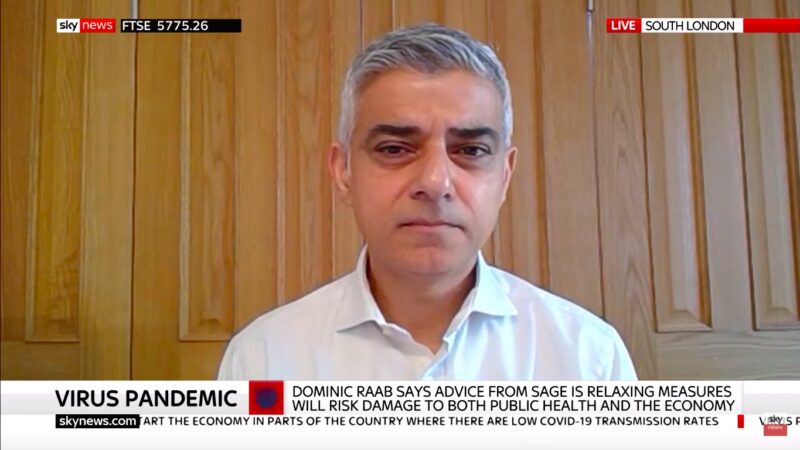
Sadiq Khan has called for the government to change the guidance and instruct people to wear a “non-medical facial covering” in circumstances where it is not possible to comply with social distancing measures.
In an interview with Sky News this morning, the mayor of London explained why he is lobbying the government’s experts to change the public health advice, and cited examples of the use of masks in other countries.
Khan said that when in shops or on public transport, for example, people should wear a covering such as a bandana or scarf to reduce the risk of transmitting coronavirus to other people.
He stated that they may not prevent members of the public from catching the virus, but said that it would “stop you passing on the virus if you are pre-symptomatic or asymptomatic”.
Mayor of London, Sadiq Khan tells Sky News why he wants face masks to be compulsory on public transport.
He says face coverings "stops you passing on the virus". #COVID19 latest: https://t.co/hMTmSlHgRO pic.twitter.com/j9HHHiwErH
— Sky News (@SkyNews) April 17, 2020
In many other countries around the world, face masks are common. Some, such as the Czech Republic and Slovakia, have made them compulsory in an effort to stop the spread of Covid-19.
The World Health Organisation has been advising that only people with the symptoms or caring for someone with Covid-19 should wear a mask, but new evidence suggests that wider use may reduce transmission.
Up until recently, UK ministers have insisted that the general public do not need to wear face masks, but the government’s chief medical officer said on Thursday that the debate is a “very live issue”.
There are now a total of 103,093 confirmed Covid-19 cases in the UK, but with low levels of testing the true figure is thought to be much higher. There have been 13,792 recorded hospital deaths from the virus.




More from LabourList
‘Labour’s quiet quest for democratic renewal’
‘Labour promised to make work pay. Now it must deliver for young people’
‘Council Tax shouldn’t punish those who have the least or those we owe the most’